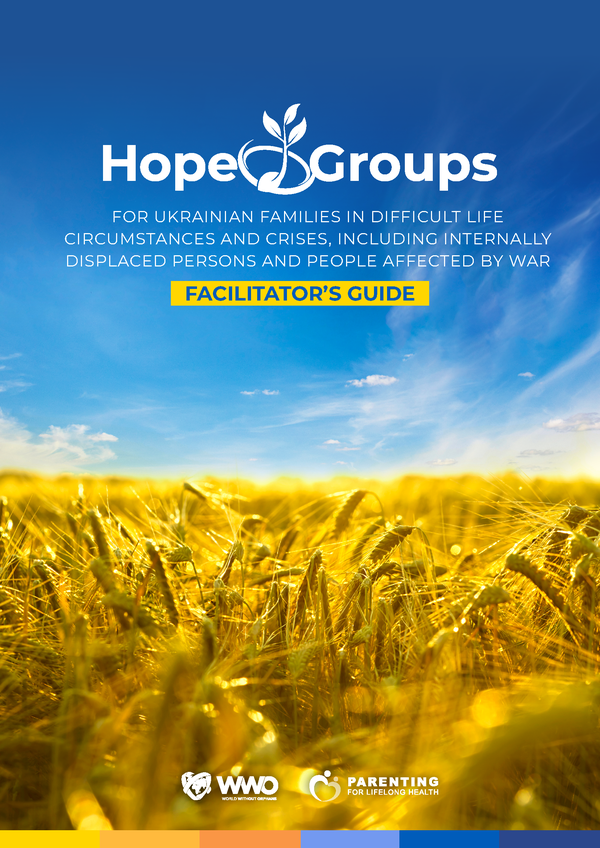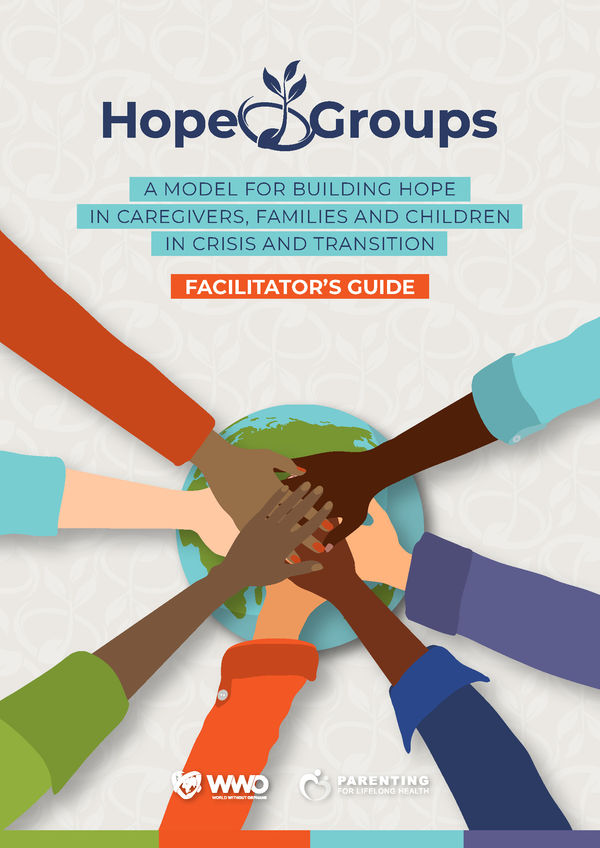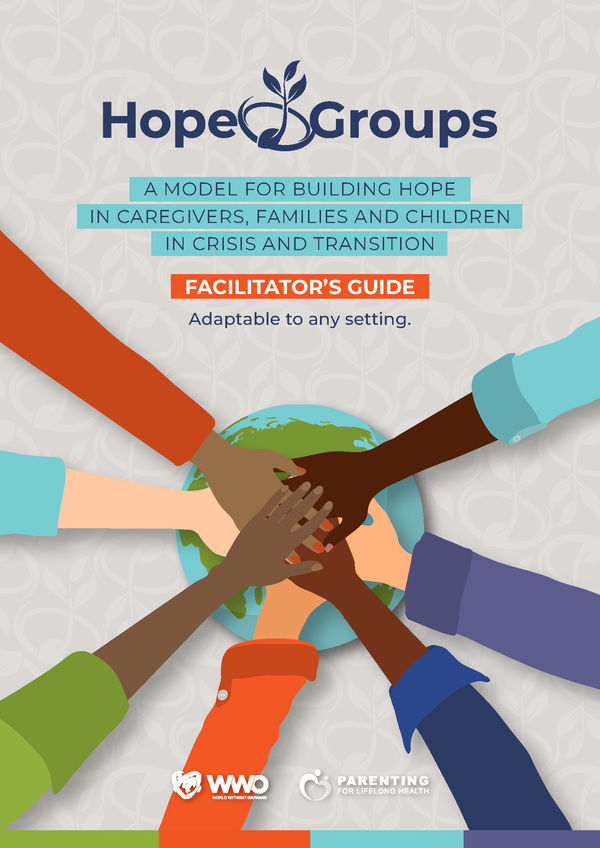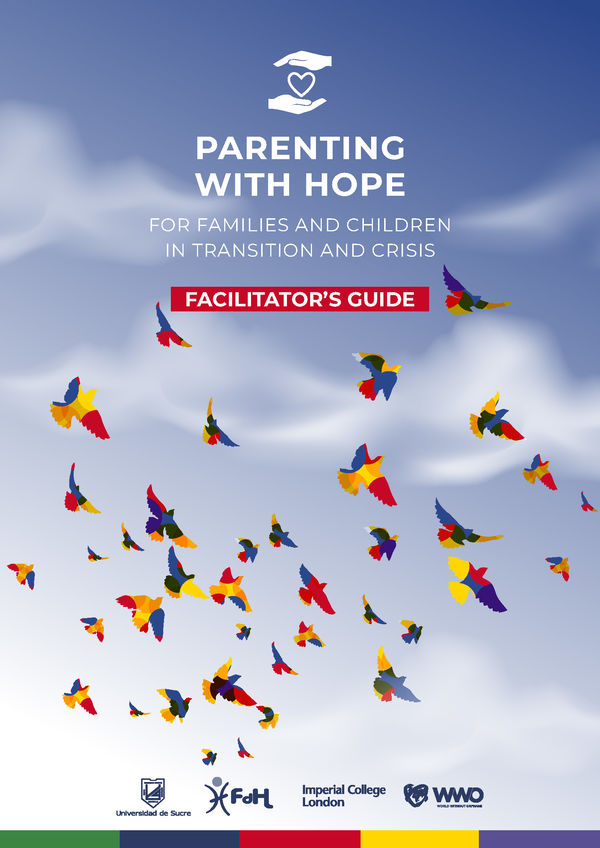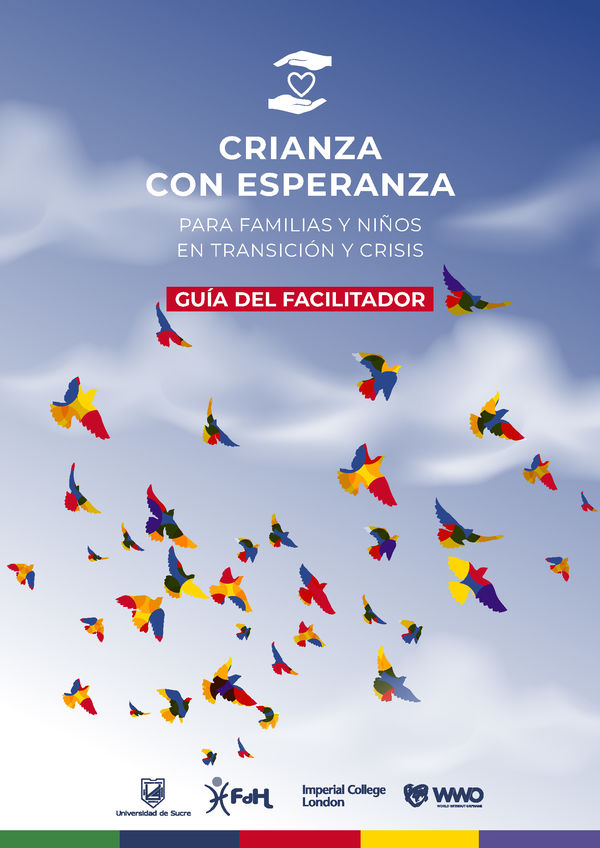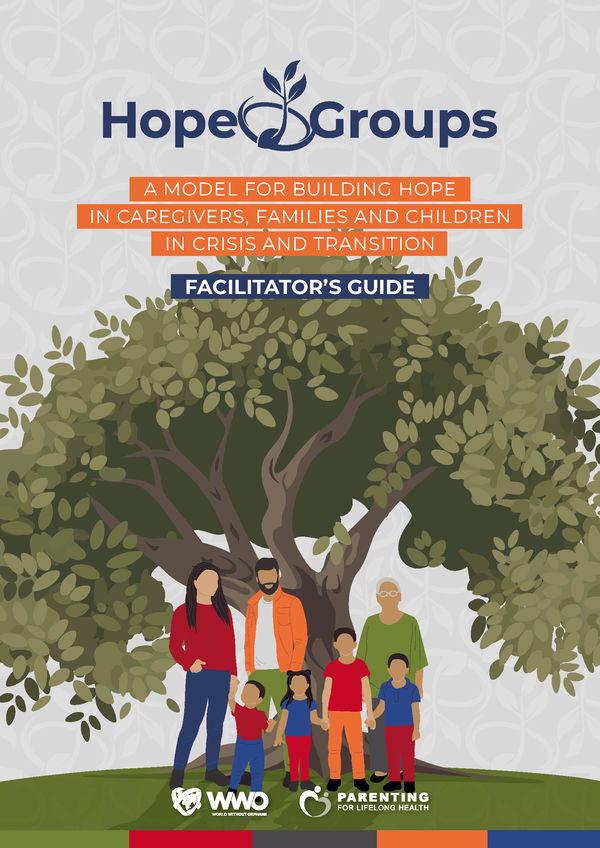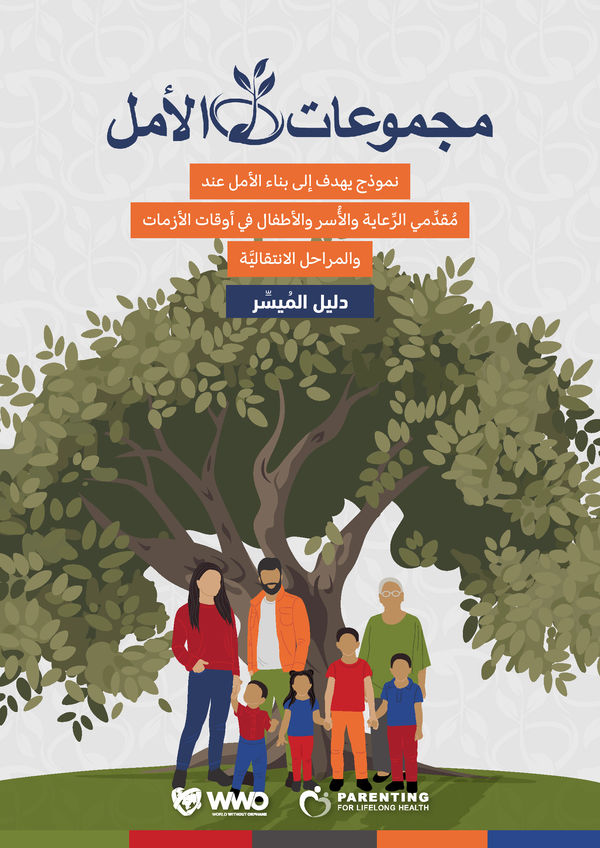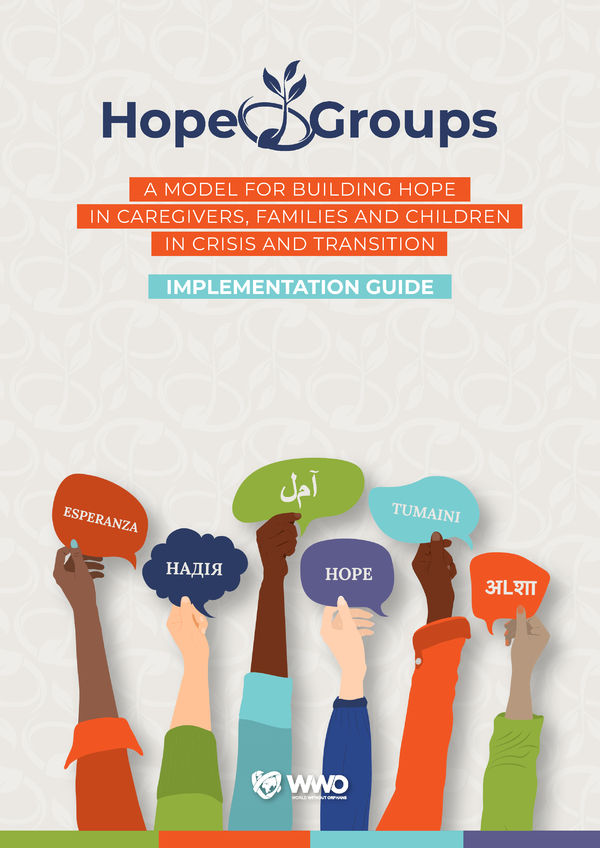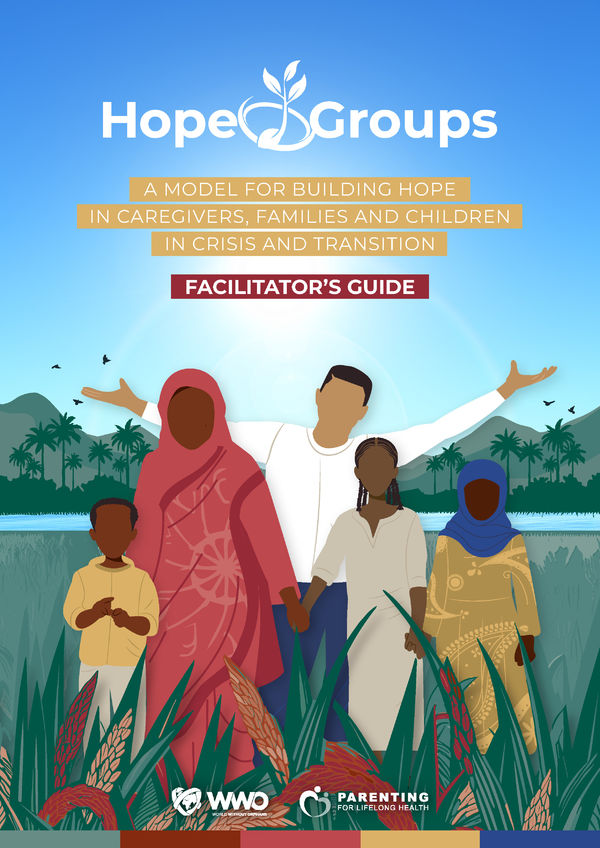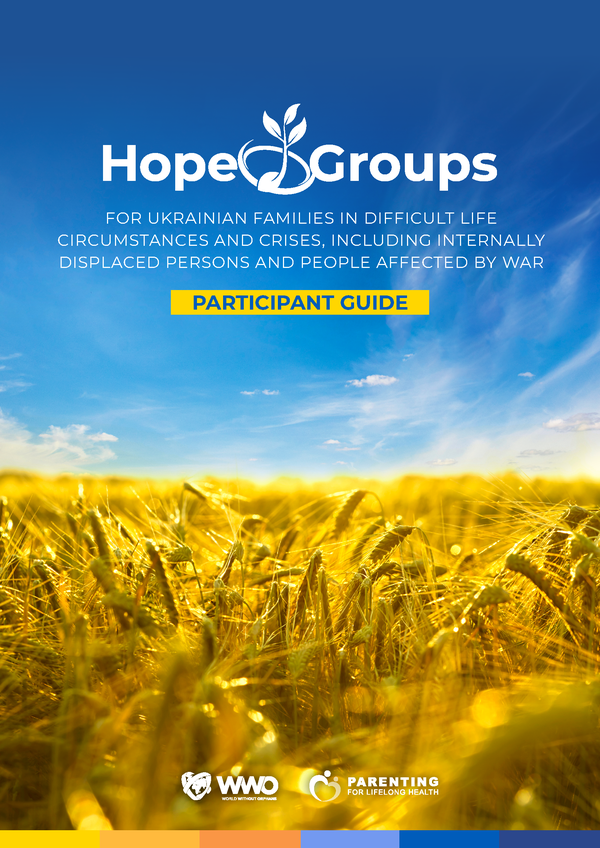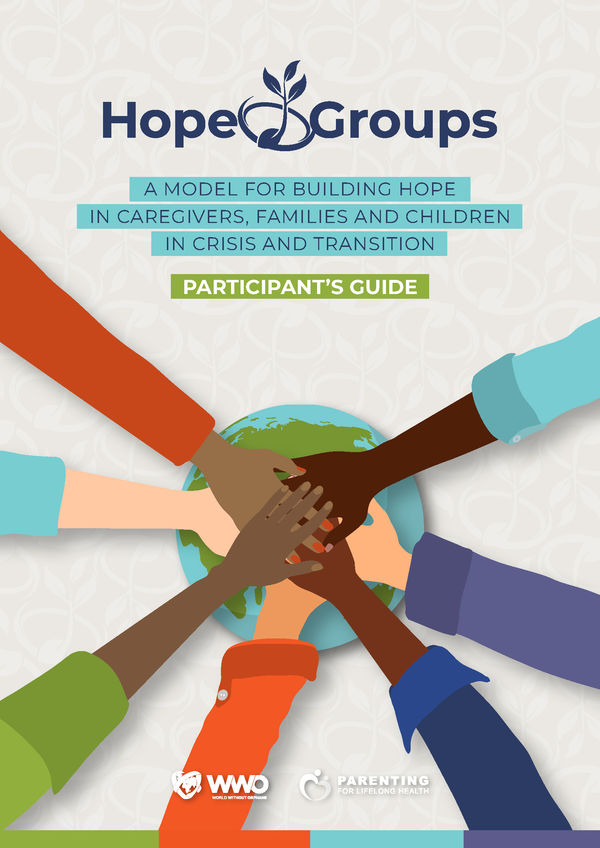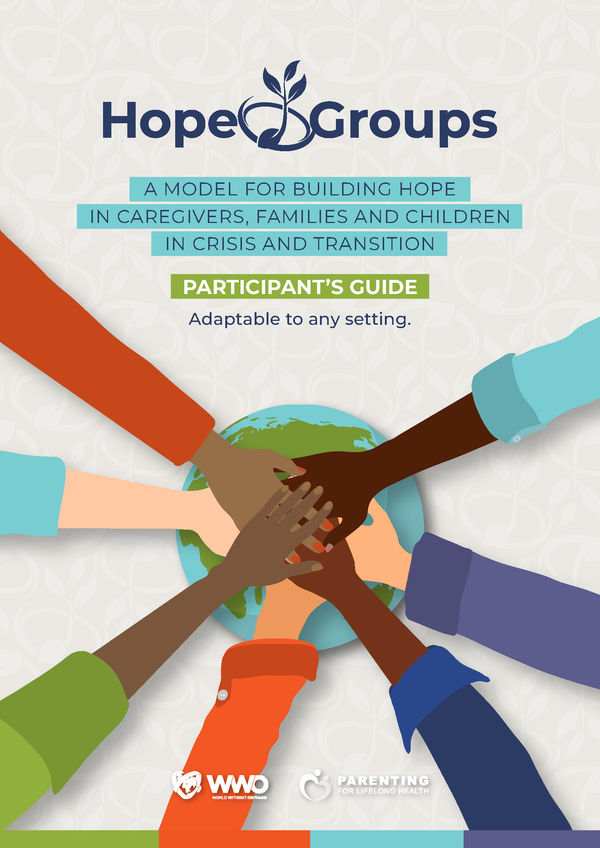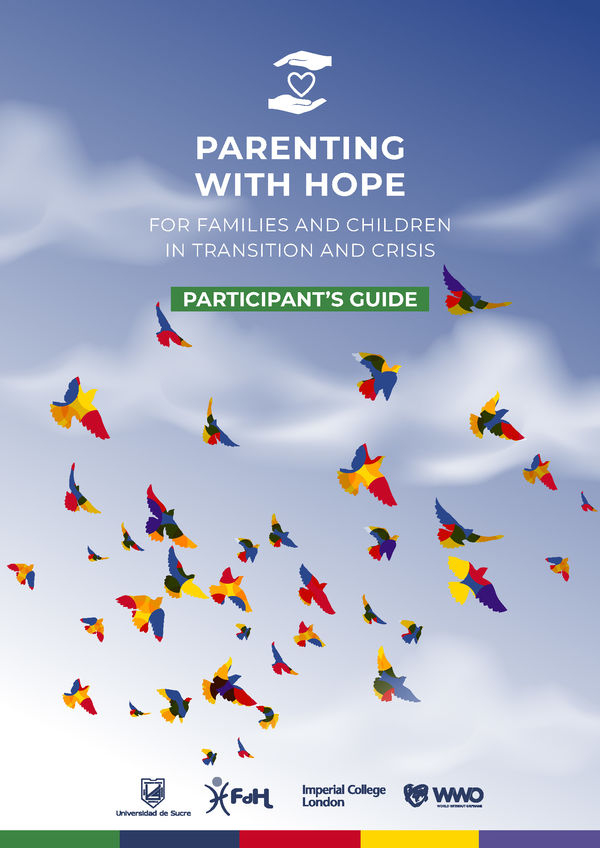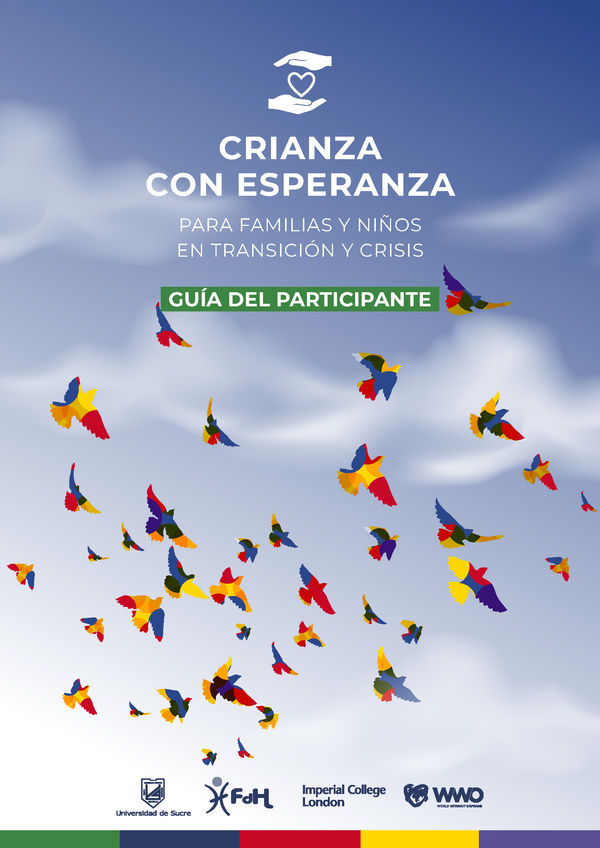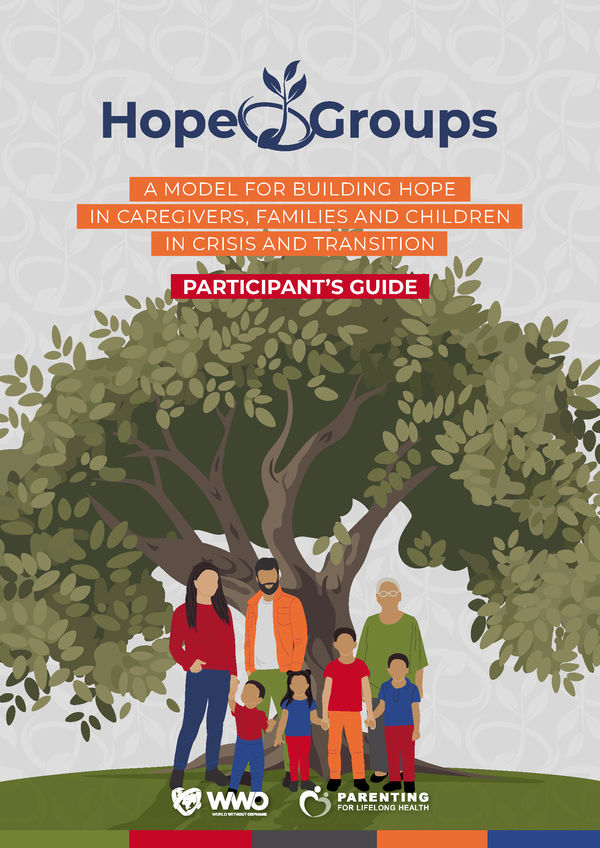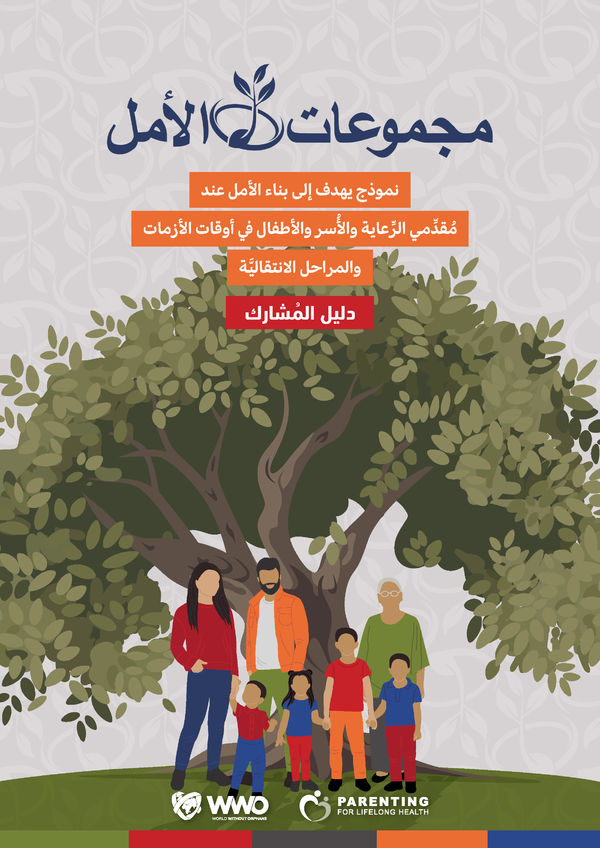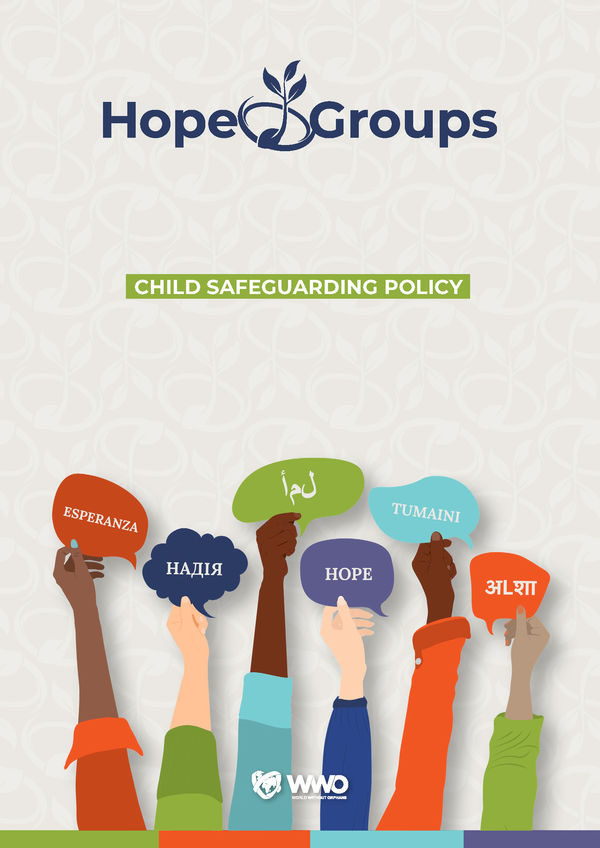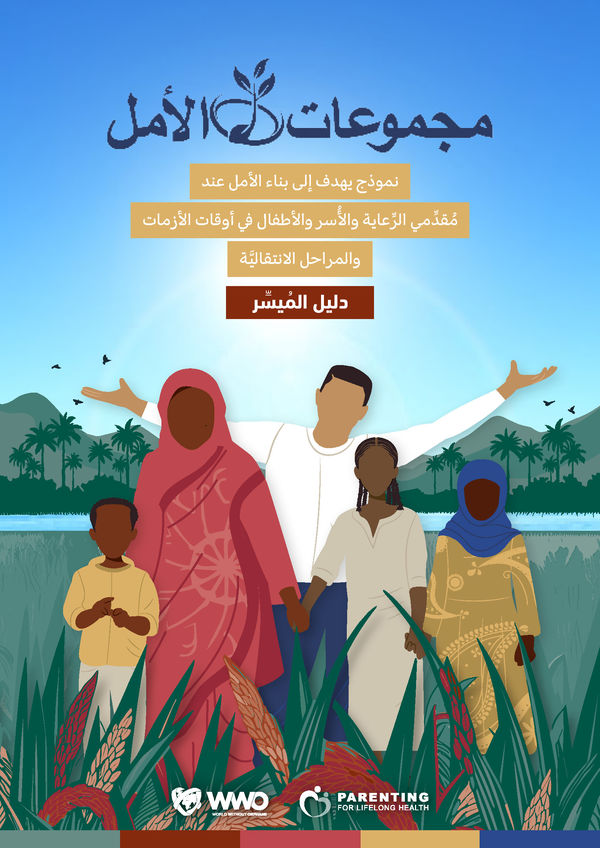Parents and caregivers play a vital role in supporting children during crises. When caregivers are equipped with self-care and emotional regulation skills, they are better able to find hope for their own well-being so they can also support children. Research on the Hope Groups to support Ukrainians impacted by war demonstrate that participants show significant increases in positive parenting, playful parenting, and abilities to cope with stress, and reductions in physical and emotional abuse. This research was conducted by the University of Oxford, in collaboration with WWO, Ukraine Without Orphans, and Children’s Mission.
Downloads
Collections of the guides and related tips
If you would like a file formatted for print, please contact us at hopegroups[at]worldwithoutorphans.org
Hope Groups - Guide for Ukraine
Crisis Inclusive Hope Groups for Christian majority contexts
Hope Groups Facilitator's Guide adaptable to any setting
Parenting with Hope for Colombia, English language
Parenting with Hope for Colombia, Spanish language
Hope Groups Faith Facilitator's Guide MENA - English
MENA Hope Groups Facilitator Guide - Arabic
Hope Groups Implementation Guide
Hope Groups Faith Facilitator's Guide Sudan - English
Hope Groups - Guide for Ukraine
Crisis Inclusive Hope Groups for Christian majority contexts
Hope Groups Participant’s Guide adaptable to any setting
Parenting with Hope for Colombia, English language
Parenting with Hope for Colombia, Spanish language
Hope Groups Faith Participant’s Guide MENA - English
MENA Hope Groups Participant Guide - Arabic
Hope Groups Child Safeguarding Policy
Hope Groups Faith Facilitator's Guide Sudan - Arabic
What are Hope Groups Participants Saying?
"For me, everything that happened in groups, in communication in the evenings over a cup of tea, in personal conversations - this is what gave me the strength to remember all the good things that happened and find the strength to move on."
- Ukrainian refugee in Poland
"After being in a Hope Group, life was divided into ‘before’ and ‘after’. All my life I felt like a victim… I am very grateful to the Hope Group and [my facilitator] for the knowledge and support…I learned to express my feelings correctly, I no longer feel like a victim, my relationships with people have improved and my anxiety has disappeared…Now I feel great hope for my future and set goals instead of fear, depression and anxiety!"
- Ukrainian who was internally displaced in Ukraine
What makes the Hope Groups work?
- Co-created with and delivered by the affected population
- Evidence-based
- Trauma-informed
- Flexible delivery formats (in person, online, hybrid)
- Adaptable for cultural resonance while still maintaining evidence base
- Expert training and implementation support
- Model for supporting facilitators to prevent burnout
Introduction to the Model
The full 12-session Hope Groups intervention is highly effective when delivered as one full program for those in protracted crisis. You can learn about the unprecedented preliminary evidence, which is described in research supported by the University of Oxford: The Effectiveness of Hope Groups, a Mental Health, Parenting Support, and Violence Prevention Program for Families Affected by the War in Ukraine: Findings from a Pre-Post Study.
The Hope Groups are part of a three-phase model WWO developed for being ‘crisis-ready’ to deliver evidence-based psychosocial and parenting support for families affected by crisis and transition, such as conflict, war, displacement, migration, natural disaster, climate disaster, epidemic, etc. These groups are supporting families and caregivers throughout the world so they can move from crisis to hope.
These phases include evidence-based parenting resources adapted from Parenting for Lifelong Health and war-time parenting research and programs.
Phase I – Acute Crisis, Parenting Tips sheets or social media tiles, which are brief and light-touch, and well-suited for the first 4 weeks of crisis onset. During this phase, people are primarily focused on safety and survival, and offering brief, basic parenting supports is realistic and beneficial. These Tips can be found on the WWO website.
Phase II – Transitionary Crisis, Hope Groups sessions 1-4, suited for 1-6 months after crisis onset, when people in crisis have reached relative safety or stability and can begin to consider needs other than purely survival. Delivered by trained facilitators (mental health professionals and lay-people). Benefit of the Hope Groups intervention is greatest when it is immediately followed by Phase III (Hope Groups sessions 5-12).
Phase III – Protracted Crisis and/or Transition, Hope Groups sessions 5-12, as a continuation after Phase II, suited for families living for a protracted period in displacement, war-zones, or other mass crises, or for those living in the new reality after a crisis has passed. Delivered by trained facilitators (mental health professionals and lay-people).
Each successive phase extends skills-building, psychosocial, and mentoring support for increased positive change in parenting practices for families and children in crisis. Each phase, along with the resources provided, was co-developed and adapted in collaboration with people affected by war, responding to the needs and requests of the affected population.
Materials, Training and Implementation Support
WWO's expert training for the Hope Groups includes:
- Flexible training on each session’s content (virtual, in-person, hybrid)
- Basic introduction to psychological trauma
- Gender-based violence and child safeguarding
Our Implementation Support is based on WWO’s experience of supporting 2,000 Ukrainian participants and their families in the first 18 months of the program. The Support includes:
- An Implementation Manual
- Model for Hope Groups delivery
- Model for organizational structure to support staff and prevent burnout
- Technical support from our expert Hope Groups staff
- Collaboration to adapt the materials to your culture or context, while maintaining the evidence base
- Templates for reporting incidences of child abuse in compliance with mandatory reporting
- Hope Groups Child Safeguarding Policy

Nicole Baldonado
Program Coordinator and Master Trainer of Hope Groups
Ms. Baldonado is a trauma-certified social worker, with a background in multi-sector collaboration across government, non-profit and grassroots community organizations. She has worked in the humanitarian sector, human trafficking prevention, and public health. In her role as Program Coordinator of Hope Groups through World Without Orphans, Ms. Baldonado worked with other trauma experts and Ukrainian nationals to develop and pilot the Hope Groups program and train Ukrainian group facilitators, reaching 2,000 participants in 10 countries in the first 18 months. Ms. Baldonado has lived in Eastern Europe more than 25 years, in Ukraine, Hungary and Poland. She and her husband and their three beautiful children were displaced from Ukraine in 2022 as a result of the Russian war, along with millions of others. Her personal experience makes her passionately committed to supporting other parents and families impacted by crises.
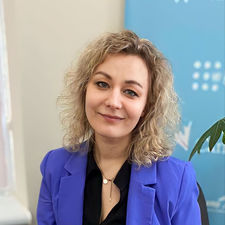
Olha Ruina
Hope Groups Program Assistant and Master Trainer
Ms. Ruina has been facilitating Hope Groups for Ukrainians since 2022 and is now the Program Assistant, where she continues to serve in the Trans-Carpathian region of Ukraine. Ms. Ruina mentors and oversees Hope Groups facilitators and is an expert advisor on the content and delivery of the program. As a psychologist, she has worked with children, teenagers, youth, and women from vulnerable groups for 15 years. Her work has supported clients with disabilities, addictions, and HIV, as well as those who have experienced war-related violence and forced displacement.
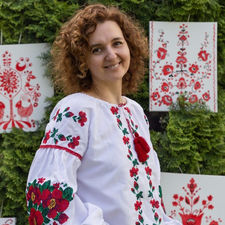
Zhenia Taradaika
Hope Groups Master Trainer
Ms. Taradaika has worked as a Hope Groups facilitator and coordinator for the Hope Groups program since early 2022, when she and her family were displaced to Poland because of Russia’s war in Ukraine. These small groups in Krakow grew into a community of more than 1,000 displaced Ukrainians. In response to this growth, Ms. Taradaika founded There is Hope, a non-profit organization that holds regular support meetings, various master classes, and other activities to help support and unite Ukrainians in Krakow. With WWO, Ms. Taradaika continues to serve as a master trainer of the Hope Groups intervention, equipping organizations and churches to lead Hope Groups through their own entities.

Susan Hillis
Senior Technical Advisor
Dr. Susan Hillis, PhD, serves as Co-Chair of the Global Reference Group on Children Affected by Crisis: Joint Estimates and Action, with support from the University of Oxford, in collaboration with the World Health Organization, World Bank, USAID, CDC, World Without Orphans, Harvard, University College London, Imperial College, and Maestral International. Dr. Hillis has published over 150 peer-reviewed papers, including the WHO INSPIRE package for Ending Violence Against Children. She also serves as a volunteer Senior Technical Advisor with World Without Orphans. She is grateful for the opportunity to serve alongside many courageous women and men affected by the war in Ukraine, and together, to see their dream of Hope Groups become a reality.
